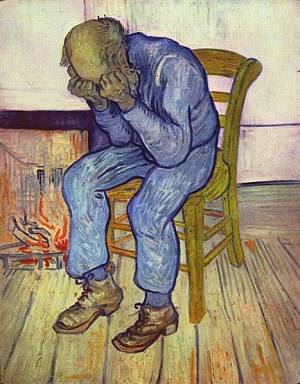By Lloyd A. Wells
It is easy to delineate what clinical decision-making is not. It is not evidence-based medicine; it is not critical thinking; it is not eminence-based medicine; it is not one of many other of its many attributes; and it stands alone, with many contributions from all these fields. It is far more difficult to characterize what clinical reasoning is and very difficult to define.
But the clinicians among us deal with it every day and, I think, recognize it when we do it and observe it.
Evidence-based medicine is a mantra. But it is a difficult mantra. No one wants to say, “I reject evidence: I am a quack.” But it is complex and difficult. Evidence from the research in psychiatry comes from clinical trials, neural imaging, genetics, and other fields. Clinical trials can be read and understood. They are viewed as the sine qua non of evidence-based medicine. But the trials are conducted on patients without any other clinical conditions and are usually of very brief duration. The clinician, on the other hand, is often dealing with patients with many other syndromes and a great deal of chronicity. It is hard to make a claim, based on evidence, that the excellent clinical trial of Drug X applies to such a patient.
Neural imaging is far more difficult. It is a very complex methodology, and psychiatric studies which use it include as investigators physicists, neuroradiologists, psychiatrists, psychologists, and others. The work is so interdisciplinary that, usually, none of the authors understands the entire paper. This is a huge question, I believe, for philosophy of science. Most of these studies are conducted on a small N, with very complex statistics, and few have been replicated. What is the clinician to do with them? Many clinicians make the assumption that the spectroscopic findings somehow translate to clinical “facts”, but that is generally not a safe assumption, nor one on which to base treatment decisions as yet.
Similarly, genetics studies are also very difficult, especially because of the completely central statistical analyses which are necessary to understanding the papers — and which few clinicians have time to read or sufficient training to understand.

Many clinicians try hard to be “evidence-based”, but it is very difficult for anyone to truly sort through the evidence in order to make an on-the-spot clinical decision which will affect the health of a patient. Some journals and digests attempt to do this in order to assist clinicians, but reliance on them implies a trust in their employees which may or may not be justified.
For all these reasons, “eminence-based” reasoning has some attraction. The clinician should base his decisions on recommendations of experts rather than her or his own scrutiny of the literature. But many of the experts are quite old and have been removed from day-to-day clinical interactions for many years.
A couple of years ago I encountered a young patient with a severe, atypical depression. My immediate response was, “This patient reminds me of another patient, who had a superb response to a monoamine oxidase inhibitor, so perhaps I should try one.” This is a poor rationale for a clinical decision until it is parsed, but, in fact, the young man’s depression was categorically similar to that of the other patient, neither had responded to more traditional treatment, and there was a supportive literature for the use of a monoamine oxidase inhibitor in this type of clinical situation. The patient in fact responded well to this treatment. I believe that this type of clinical decision-making is common and that it is based on science and evidence, though sometimes the science and evidence are not immediately apparent unless the clinician thinks about it.

Clinical reasoning requires consideration of the evidence and efforts to assess it, good critical thinking, and also, in my view, the experience of interacting with and treating many patients over time. It is not a laboratory exercise but one which involves a doctor, a patient, and the world around them.
Lloyd A. Wells, Ph.D., M.D., is Consultant Emeritus at the Mayo Clinic in Rochester, Minnesota, USA. While there, he chaired the Division of Child and Adolescent Psychiatry for nineteen years and was the Department of Psychiatry’s Education Chair for twelve years. He is co-editor, with Christian Perring, of Diagnostic Dilemmas in Child and Adolescent Psychiatry.
Subscribe to the OUPblog via email or RSS.
Subscribe to only brain sciences articles on the OUPblog via email or RSS.
Image credits: (1) Wooden Sculpture of Science Genetics, by epSos.de, CC-BY-2.0 via Wikimedia Commons. (2) Sorrowing Old Man, by Vincent van Gogh, public domain via Wikimedia Commons.
The post What is clinical reasoning? appeared first on OUPblog.


